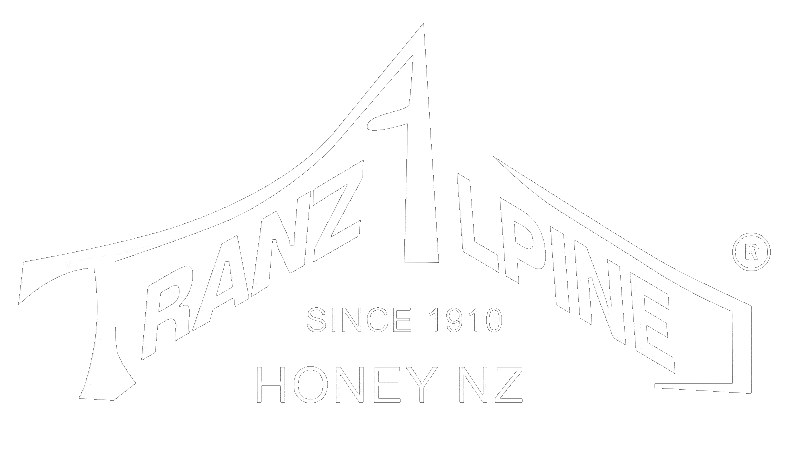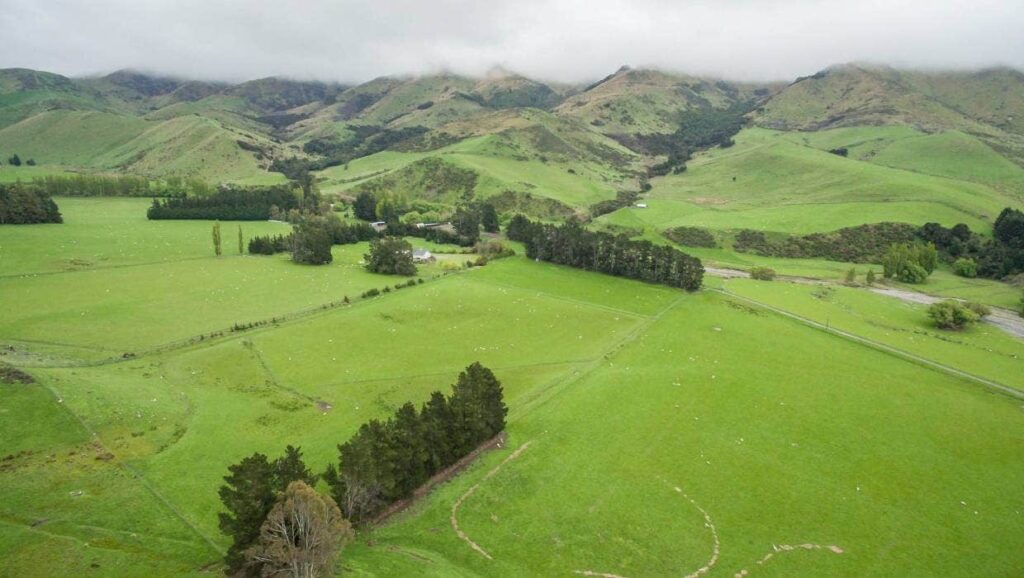
The Regenerative Agriculture Project: TranzAlpine Honey and Mt Whitnow Station
In 2017, Yuriy, the MD of TranzAlpine Honey and owner of Mt Whitnow Station in North Canterbury, Donald Williamson, decided to trial 60 of the TranzAlpine Honey beehives on the peaks of the remote station.
Neither one of them imagined that what they began as an attempt to improve the quality of the existing biodiversity would take off to such an extent that 6 years later, the unforgiving, barren terrain where nothing could previously grow was lush and thriving.
All thanks to the bees.
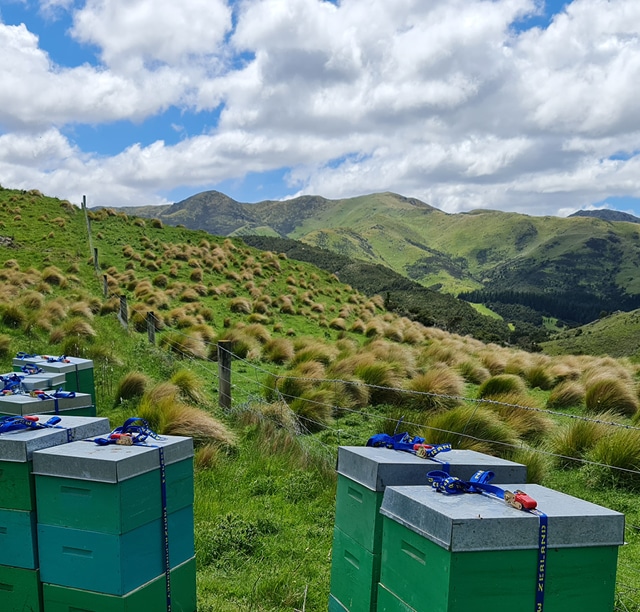
Sustainable Integrity
At TranzAlpine Honey, we believe that the production of certified organic honey is so much more than not using pesticides or chemicals.
It’s about building and nurturing stronger ecosystems together with the wider farming community, it’s about education for staff, customers, suppliers and to the industry.
It’s about investing in the less harmful elements of honey production, the ecosystem surrounding our hives and knowledge the entire farming community benefits from.
Organic beekeeping practices build healthy ecosystems and sustainable agriculture, which are the fundamentals of climate change mitigation and adaptation.
To us, the production of our certified organic honey is about absolute sustainable integrity – from the placement of the hives, right until production, packing and shipping.
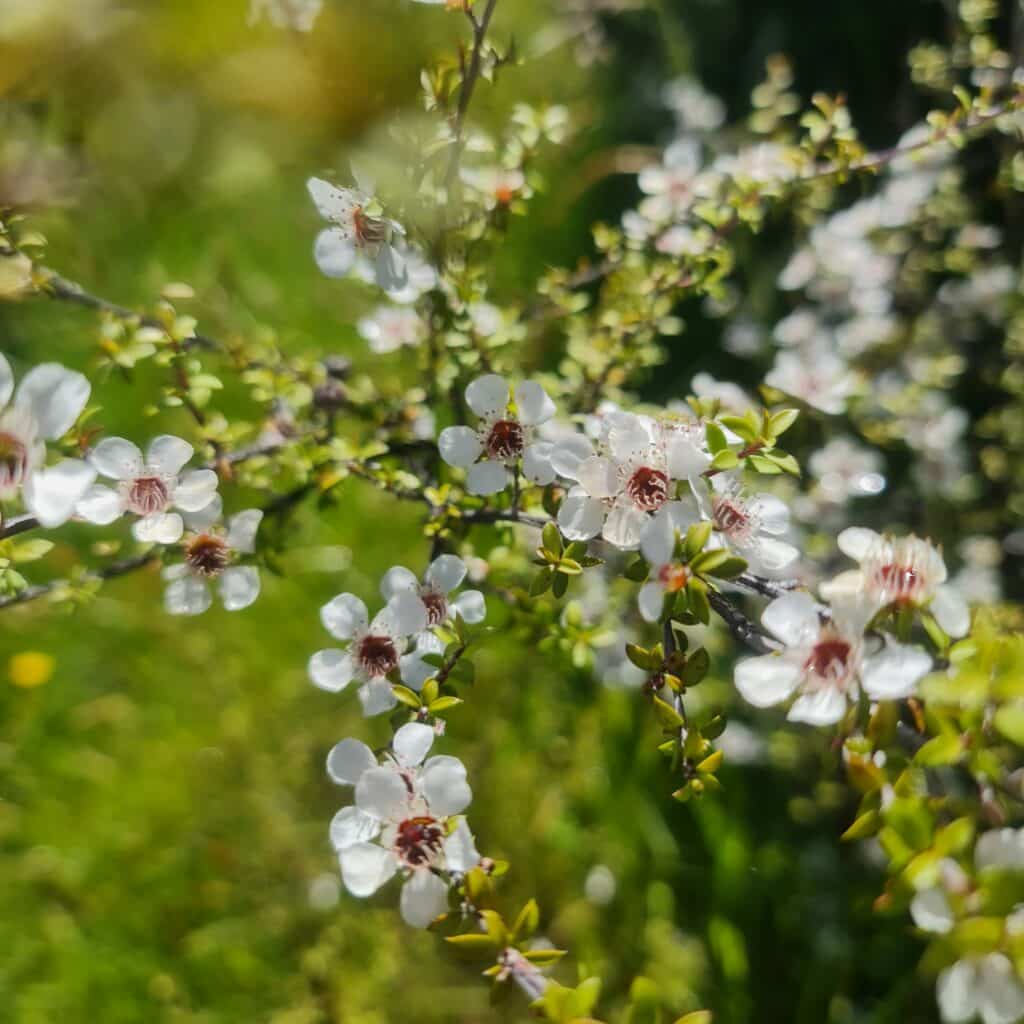
The beekeeper and high-country farmer
The regenerative agriculture project restoring biodiversity in North Canterbury
The high-country alpine plains of Mt Whitnow in North Canterbury are known for their harsh, unforgiving terrain and breathtaking landscapes.
At 1390 metres above sea level, the sharp contours offer staggering views bounded by the Seaward and Waitohi Rivers. But when owners Donald and Carolyn Williamson took over the high country station in 2017, it was in bad shape.
The rough terrain, high altitude and unforgiving climate meant that the soil quality is naturally poor. Nothing grows up there. The land can’t be irrigated, farmed or planted and was difficult to access unless you are a part of the flock or Merino sheep that are residents there.
But that all changed when the TranzAlpine Honey bees moved in.
After an initial trial of 60 hives placed on the land, things changed very quickly.
The bees prolifically pollinated the clover, establishing the crop in abundance.
It has restored the nitrogen in the soil, with its long tap roots that reach deeply into the soil to utilise nutrients and minerals. Vastly improving the quality of the feed for the livestock – so much so that the average lamb weight has jumped from 28kg -32kg in just a few years. A metric that Donald credits entirely to the bees.
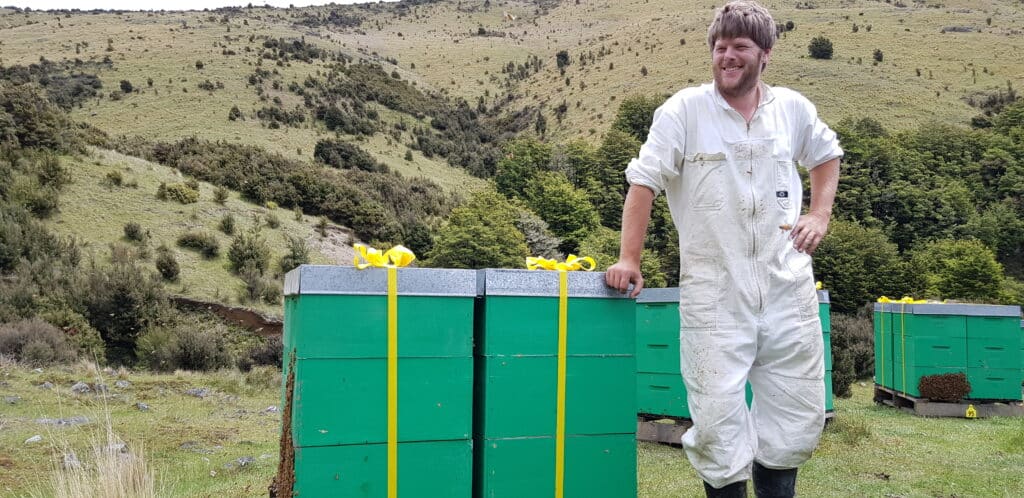
The incredible impact of Clover and the bees
The clover has:
- Restored the nitrogen balance in the soil
- Restored the quality of the topsoil
- Regenerated the earthworm populations
- Reversed the structural degradation in the soil
- Significantly improved the nutrient absorption capacity
- Almost completely removed the need for artificial fertilisers
Donald is now able to sow 3 different varieties of clover to ensure that the bees can pollinate all year round.
The TranzAlpine Honey team has now been able to plant 1000 native plants, including Mānuka and Kānuka trees, at Mt Whitnow Station, where virtually nothing was able to grow just 6 years ago.
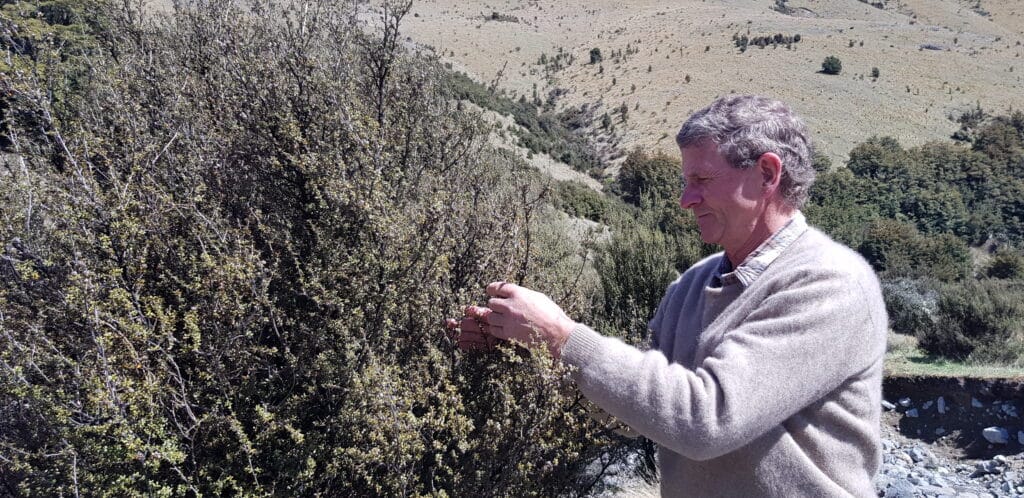
Primary Industry Champions
Over the past 6 years, the partnership between TranzAlpine and Mt Whitnow has built an effective and regenerative farming system that is built on modern organic principles.
TranzAlpine has built its largest organic bee operation at Mt Whitnow, which is home to 800 beehives, cattle, and Merino who all live together in harmony.
The remoteness and sustainable spray-free operation at the station allows TranzAlpine to continue operating organically, and produce one of the rarest organic certified honey in New Zealand.
Mt Whitnow station is a commercial farming operation that includes 18 micron Merino wool production destined for outdoor clothing companies, such as ethical and regenerative wool brand ZQ or sustainable Merino Wool clothing manufacturer, Icebreaker.
Wool from half-bred ewes averaging 25 microns, and hogget wool around 22.5 microns, is contracted to SmartWool.
The station now carries 2,100 Merino ewes that are mated to Romney rams, 2,500 half-bred ewes mated to terminal rams, 900 half-bred hoggets, plus 90 Te Mania-bred Angus cows and 65 heifers.
All of which, says Farmer Donald, are thanks to the TranzAlpine Honey bees.
Posted in Biodiversity, News, Organic, Research
Share:
